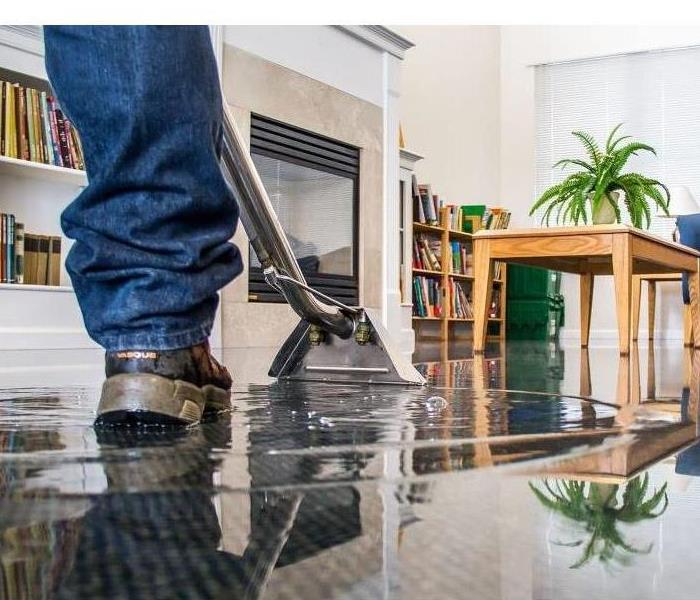Why Clean Up That Water?
8/18/2023 (Permalink)
Excess moisture in your home can lead to a range of problems, both structural and health-related. It's important to manage moisture levels to maintain a healthy and safe living environment. Here are some of the potential issues that moisture can cause in your home:
Mold and Mildew Growth: High moisture levels provide an ideal environment for mold and mildew to thrive. Mold growth can damage surfaces, produce unpleasant odors, and pose health risks, especially to individuals with allergies, asthma, or respiratory issues.
Structural Damage: Moisture can weaken the structural integrity of your home over time. It can cause wood to rot, weaken foundations, corrode metal components, and deteriorate materials like drywall and insulation.
Dampness and Discomfort: Excess moisture can lead to a feeling of dampness and discomfort within your living spaces. This can make your home less inviting and affect your overall quality of life.
Peeling Paint and Wallpaper: Moisture can cause paint and wallpaper to peel or blister, leading to unsightly and deteriorating surfaces.
Water Stains: Water stains on ceilings, walls, and floors are not only unsightly but can also indicate ongoing leaks or moisture issues.
Pest Infestations: Moist environments attract pests such as cockroaches, termites, and silverfish. These pests can cause additional damage to your home and pose health risks.
Allergens and Health Risks: Mold spores and dust mites, both commonly found in moist environments, can trigger allergies and worsen respiratory conditions like asthma.
Foul Odors: Moisture can create musty and unpleasant odors that linger in your home, making it less comfortable for occupants and visitors.
Electrical Hazards: Moisture can damage electrical systems, leading to short circuits, power outages, and potential electrical hazards.
Decreased Energy Efficiency: Moisture can affect the insulation properties of materials, leading to decreased energy efficiency as heating and cooling systems work harder to maintain desired temperatures.






 24/7 Emergency Service
24/7 Emergency Service
